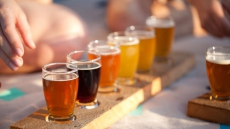Bacterial communities living on an individual's pubic hairs could be used as a microbial "signature" to trace his involvement in sexual assault cases, say Australian researchers.
In the first study of hair microbiota for forensics, they found pubic hairs show the most potential for forensic investigations, with an ability to distinguish between male and female based on the bacteria present.
The team also found that an individual's pubic hair microbiota appeared to be transferred during intercourse, suggesting its potential for forensic analysis on sexual assault cases.
The advent of DNA profiling has resulted in an increase of sexual offenders using condoms which they take away post-assault.
"The implication of this present study is that the transfer of bacteria between victim and offender in rape cases may provide a new way of linking the offender to the victim, in instances in which no human DNA is transferred," explained lead author Silvana Tridico from Perth-based Murdoch University.
In the small yet significant study, seven individuals (three male and four female, two of whom were a co-habiting couple) each collected scalp and pubic hair samples.
The researchers carried out an analysis of the hair samples to identify microbial DNA in order to build a picture of the microbial communities which were present.
Scalp hair showed fewer distinct varieties of microbe (approximately 50 varieties in male hairs, and 55 in female) and appeared to be more influenced by common environmental microbes.
In contrast, each individual's pubic hairs harboured distinct communities of microbe, with around 73 different varieties in male pubic hairs and 76 in females.
The preliminary results suggest that microbial communities on pubic hairs could be used as microbial "signatures" to identify sexual offenders.
Their study appeared in the open access journal Investigative Genetics.





